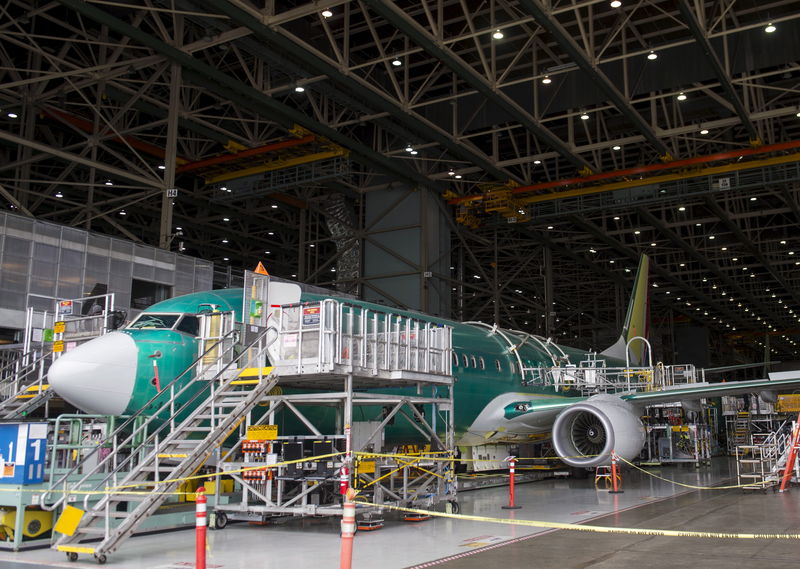This post was originally published on this site
https://i-invdn-com.investing.com/trkd-images/LYNXMPEI1H02N_L.jpg
WASHINGTON (Reuters) – The next head of the U.S. Federal Aviation Administration (FAA) will face challenges overseeing Boeing (NYSE:BA) Co and a series of reforms mandated by Congress in the wake of two fatal 737 MAX crashes.
The job opened late Wednesday when the FAA announced administrator Steve Dickson, 64, would resign effective March 31, about halfway through his five-year term.
Among those mentioned by congressional and industry officials as potential replacements are former pilots C. B. “Sully” Sullenberger and Lee Moak.
Sullenberger, the current U.S. representative on the Council of the International Civil Aviation Organization (ICAO), rose to fame in 2009 when he safely landed an Airbus A320 on New York’s Hudson (NYSE:HUD) River after hitting a flock of geese – known as the “Miracle on the Hudson” flight.
Moak, a former president of the Air Line Pilots Association, is currently a member of the U.S. Postal Board of Governors.
Dickson headed the FAA as it oversaw a comprehensive review of the then-grounded Boeing 737 MAX. He took a hard line, warning in late 2019 that Boeing was pursuing “a return-to-service schedule that is not realistic.”
Dickson even piloted the plane in September 2020 for a test flight before approving its return that included extensive training and software updates.
The best-selling, single-aisle airplane was grounded for 20 months after two crashes killed 346 people in the space of five months, returning to service in late 2020.
Congress approved sweeping legislation in December that year, boosting the FAA’s oversight of aircraft manufacturers, requiring disclosure of critical safety information and providing new whistleblower protections.
Senate Commerce Committee chair Maria Cantwell said in a statement on Thursday “there is much work still to do to maintain America’s leadership in aviation- implementing congressionally-mandated safety reforms, training a workforce skilled in advanced technology, and furthering aerospace research and development.”
The incoming administrator will also face the headache of the deployment of 5G wireless on the C-Band spectrum, an issue that saw major international airlines scramble to cancel or rejig U.S flights last month amid warnings the network could interfere with sensitive aviation electronics like radio altimeters.
Telecommunications companies AT&T (NYSE:T) and Verizon (NYSE:VZ) agreed to keep 5G towers off last month’s network rollout, postponing their deployment until early July, and to take “additional steps to minimize energy coming from 5G base stations – both nationwide and to an even greater degree around public airports and heliports.”
The FAA recently conducted test flights with active 5G, carrying AT&T and Verizon engineers onboard, and the agency is “still doing the analytics right now,” Dickson said. “It’s really unprecedented for us to be working with an industry that we don’t regulate…. That is part of what needed to happen.”
Dickson said on Thursday Boeing has made significant changes in recent years and with the FAA the airplane manufacturer “really improved the discipline within their engineering organization and I am confident in our oversight of their product.”
The FAA is still scrutinizing a number of issues involving Boeing airplanes and on Tuesday said it would not allow Boeing to self-certify 787 Dreamliners.
Boeing agreed to a deferred prosecution agreement with the Justice Department in January 2021 including $2.5 billion in fines and compensation stemming from the 737 MAX crashes.
House Transportation Committee chair Peter DeFazio said President Joe Biden “must now nominate a new leader committed to the highest standards of aviation safety” and “hold Boeing accountable for the tragic consequences of their decision to put profits over people when rolling out the 737 MAX.”
Dickson said Thursday his safety team “knows that I have their back.”

